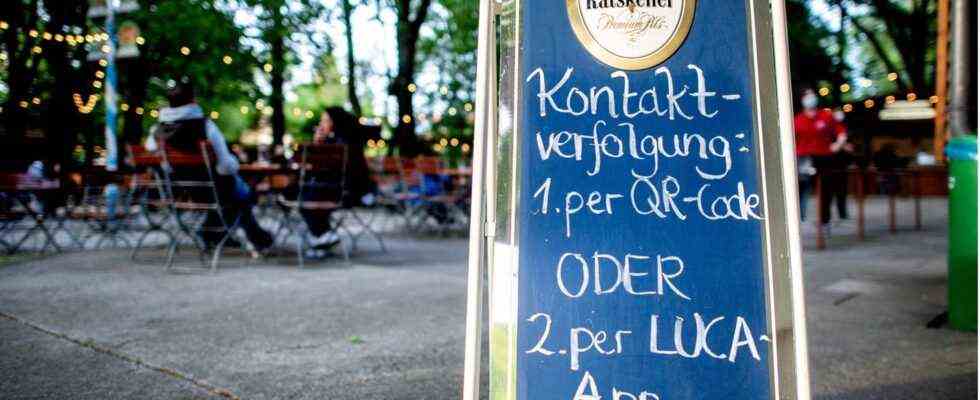Where most of them get infected with corona
Politicians advise on 3G in buses and trains – the corona hotspots are completely different
Data indicate where a particularly large number of people are infected with the coronavirus.
© Hauke-Christian Dittrich / DPA
The higher the incidences rise and the further the lockdown option is pushed away, the more important the search for the corona hotspots becomes. Data from the Luca app provide initial information.
Almost three quarters of all warnings from the health authorities in Germany that were generated from the Luca app system went to visitors to bars and clubs. This emerges from an anonymous evaluation for October, in which over 181,000 warning messages were analyzed. Almost half of the warnings concerned clubs (49.1 percent) and just under a quarter concerned bars (23.2 percent). Warning notices via app and calls to users of the app by the health department were recorded.
In contrast, comparatively few warning messages were sent to restaurant guests. They received 10.9 percent of all warning messages, show the figures published by the operator of the Luca app on Monday in Berlin. Almost nine percent of the warnings went to the visitors of events and festivals. Retailers (1.0 percent), cinemas (1.7 percent) and theaters, museums and cultural institutions (together 0.9 percent) hardly played a role. Sports (0.8 percent) and spas / swimming pools (0.6 percent) also did not turn out to be hotspots.
Luca app fills gaps in the Corna warning app
The Luca app wants to replace the mess of paper that would result from an analogue recording of the visitor’s contact details. This recording of contacts is required by law in most federal states. It cannot be done by the federal corona warning app, which anonymously records dangerous risk encounters. In addition to Luca, apps such as eGuest or Vida also offer contact recording.
With the help of the Luca system, the health authorities can choose between two different levels when making contact. On the one hand, users can be informed digitally about a general risk of infection. If several people who later tested positive for the coronavirus were at a location recorded with the Luca app, the health authorities can also issue a targeted infection warning and point the people at risk to test centers in the area.
The Luca app has been criticized by data protectionists primarily because of a concept of central data storage. In addition, the use in the health authorities is very different, since some responsible people doubt the effectiveness of the Luca system. Hamburg is the pioneer in use. Almost 69,000 warning messages were triggered there by the health department in November alone.

